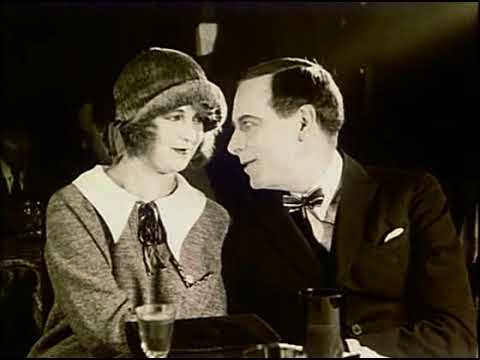The 38th annual San Francisco Jewish Film festival is in full swing. From July 19 to August 5, Bay Area theatres in San Francisco, Albany, Palo Alto, San Rafael, and Oakland will screen 67 Jewish films from 22 countries. One of the films is a restored 87 minute 1924 Austrian production of ‘Stadt ohne Juden” –“The City without Jews.” It is based on serial novelist Hugo Bettauer’s 1922 novel. Bloch Publishing in New York produced an English translation in 1926.
Maximilian Huge Bettauer was controversial. Born in 1872 into a Jewish family he converted to the Evangelical church in 1890. He was a novelist and a journalist with a reputation for writing about the seamy side of life, the shortcomings of Austrian society. The film was made into a movie in 1924 by director Hans Karl Breslauer. We live in an age of silent film appreciation. This film was apparently discovered in a Paris Flea market and nitrate prints were restored with the assistance of over 700 donors.
The film evoked strong controversy. Bettauer, the author, was murdered in 1925 by a fascist National Socialist for his opposition to anti-Semitism. Legal proceedings resulted in the culprit spending 18 months in a mental institution and being released. Film director H.K. Breslauer joined the Nazi party in 1940.
The restored City Without Jews screened on July 22 in San Francisco’s Castro Theatre accompanied by an original live score performed by Sascha Jacobsen and the Musical Art Quintet. I was in Southern California and missed the international premiere of this 94-year-old historic film. I had seen snippets of the film in the Jewish Museum Vienna. The video screen was mounted flush with the floor. Viewers had to contort their bodies to see it. Both the body and story line were awkward. The full film, almost a century old, is now on YouTube; the theme of the film, ‘lets make Vienna great again,’ are as salient as ever.
Originally Vienna was the subject city. It was changed to Utopia for political reasons. Utopia’s economy was in the dumps. Ravaging unemployment and rampant inflation had pitted would be workers against elites, bankers and the fat faced bourgeoisie. Silent film with German and in this cut, Spanish subtitles tell the linear story. Makeup, bushy mustaches, facial exaggeration and contortion, body language and mannerisms, and wearing apparel tell a parallel reinforcing story separating the good protagonists from the allegedly manipulative filthy rich. Jews had long been the stock scapegoat. They were relative newcomers, immigrants, and apparently stood out, reinforced by stereotypes of the glutinous, and long beards, black coated, somewhat disheveled Orthodox.
The chancellor, despite stating “some of my best friends are Jews,” proposes to expel all Jews from Utopia. American Jonathan Huxtable, a rabid anti-Semite, is invoked at least three times in the subtitles. Huxtable was a prototype for Henry Ford. The legislature banned Jews from Utopia, the law makers were gleefully self-congratulatory. Intermarried couples were rended apart at the passenger trains at the railroad station. Jews were depicted as dispirited and resigned. A love story is inserted where a banned Jew returns from Paris with a face changing mustache and a fake passport. Gentiles took over some Jewish businesses.
The great irony: The departure of the Jews reduced the population, deprived Utopia of entrepreneurs and reduced consumer purchasing power. The loss of Jews made the economy worse.
Miguel Pendás, creative director of the San Francisco Film Society and historian of the San Francisco International Film Festival wrote in the program notes appearing on the Jewish Film Festival website, “Looking ahead ten years to what happened in Europe, this tongue-in-cheek “expulsion” foresaw the all-too real “extermination” of Jews. We now have the opportunity to see this film and realize that thinking a happy ending could result from such a vile proposal is truly laughable.”
This has been described as a satire, a dark comedy. My father was eleven years old and living in Vienna when this film appeared. He enjoyed the cinema and never mentioned it. I have seen snippets of Hitler’s film Theresienstadt produced in 1944 to impress the Red Cross. I have seen Leni Riefenstahl’s films praising the Third Reich. They are echoed in George Orwell’s dystopian novels Animal Farm (1945) and 1984 (1949). Film has the power to mislead, patriotize, demonize, project, and prophecize. Poet Percy Bysshe Shelly, husband of the author of Frankenstein, wrote in 1821 that “poets are the unacknowledged legislators of the world.” I wonder what he would he have said of filmmakers or YouTube?
Republished from San Diego Jewish World


























